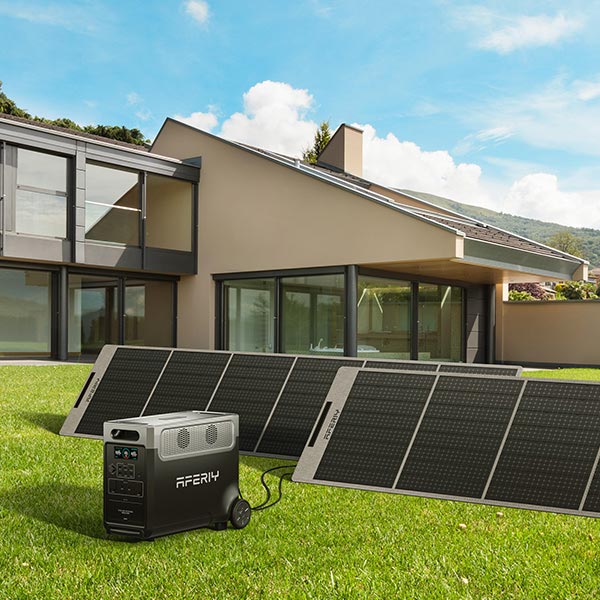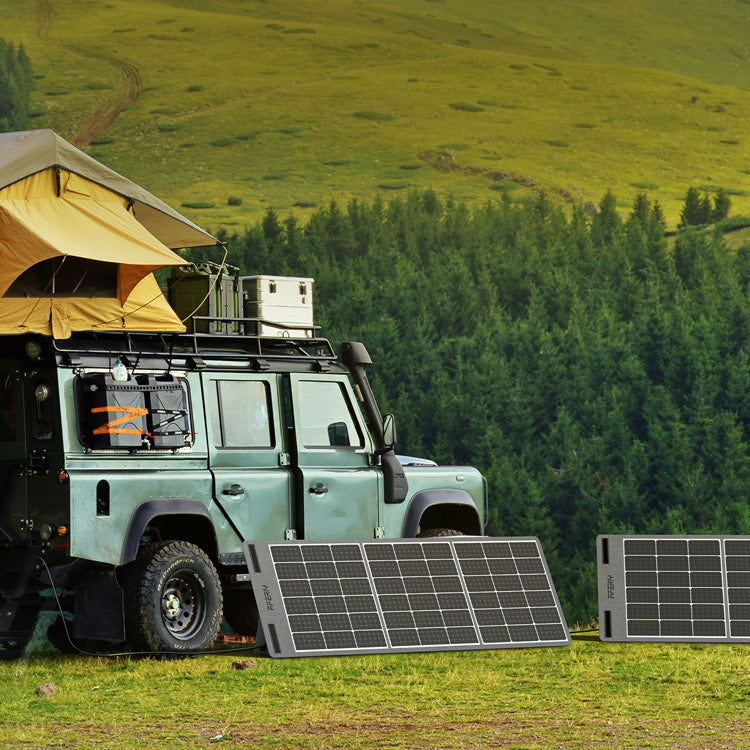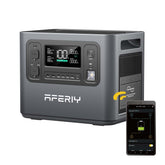Portable Power Station VS Generator: Which One to Choose?
It's undeniable everyone can come across a power outage in a lifetime. Having no electricity makes that period, whether hours or days tough to go through. Meanwhile, that can cause a lot of inconvenience to our everyday living, for example, our phones can run out of charge and appliances are unable to work.
In this modern era, fortunately, we have portable power stations and generators, which are great power solutions to cope with power blackouts and different emergencies where we are left to struggle without power.
But which one is better and how to set them apart?
While many are confusing between mobile power stations and generators, one thing you should be clear about is they are absolutely not the same, and function quite differently. This blog will walk you through a comparison between portable power stations and generators about how they work, and what functions they're respectively performing.
Portable Generator

Portable generators are mechanical devices that covert different forms of power sources, which usually are gasoline, propane, or diesel, into electrical energy. They're driven by either a water turbine, steam turbine, diesel engine, or other supporting power machinery to convert energy generated by water flow, gas flow, fuel combustion, or nuclear fission into mechanical energy delivered to the generator. Then, the mechanical energy is converted to electrical energy by the generator.
Capabilities
- A portable generator's control panel can provide access to several power outlets, such as 15, 20, 30, or 50 amp sockets.
- It works by burning fuel stored in its tank, which you can refill it upon burning though all fuel, in this way it can have unlimited run times so long as you have enough fuel to keep it running.
- It is capable of lighting up homes, powering up RVs, as well as small appliances such as mini refrigerator, cooler, and car charger.
Limitations
- It's not applicable for powering up sensitive electronics like phones and laptops, unless it's an inverter generator or you've installed a transfer switch onto it.
- Most generators run on fuel, which can generate CO when burning. The gas will do harm to your health if inhaled, and can cause environment pollution problems if emitted to the outdoors.
- It's likely to cause a fire whilst you're filling the tank with fuel.
- It's quite noisy when operating.
Portable Power Station

Portable power stations, also called battery-powered inverter generators or gasless generators, are devices storing electric energy in the built-in battery for use when needed. Different from generators, they run via plugging into AC wall outlets and require no fuels, you can think of them as power banks but with ultra large capacities.
Capabilities
- Rechargeable power stations are usually of high portability, making it possible for you to carry power wherever you go.
- The diversity of charging options empowers them to power up a ton of electrical devices with different outlets, such as AC outlets, USB ports.
- Many of them boast overload and short circuit protection function to ensure the safety of electricity use.
- They produce clean energy and are quiet when running.
- They're the ultimate and an essential power solution for both household or outdoor use.
- Some models are compatible with solar panels, which means they can harness sun's energy and convert that into electric energy.
Limitations
- Their run time is limited as they are operated by a battery. If the battery runs out, you'll have to recharge it and wait for the power station to start again.
- They could sometimes not be so "portable" based on capacities.
- They are costly.
Conclusion
Above is a brief rundown of the differences between a mobile power supply and generator. Hopefully, you are now having a better understanding of how to differentiate them. However, which one to choose depends upon your basic energy needs and the way of life you want to live.











Leave a comment
Please note, comments need to be approved before they are published.